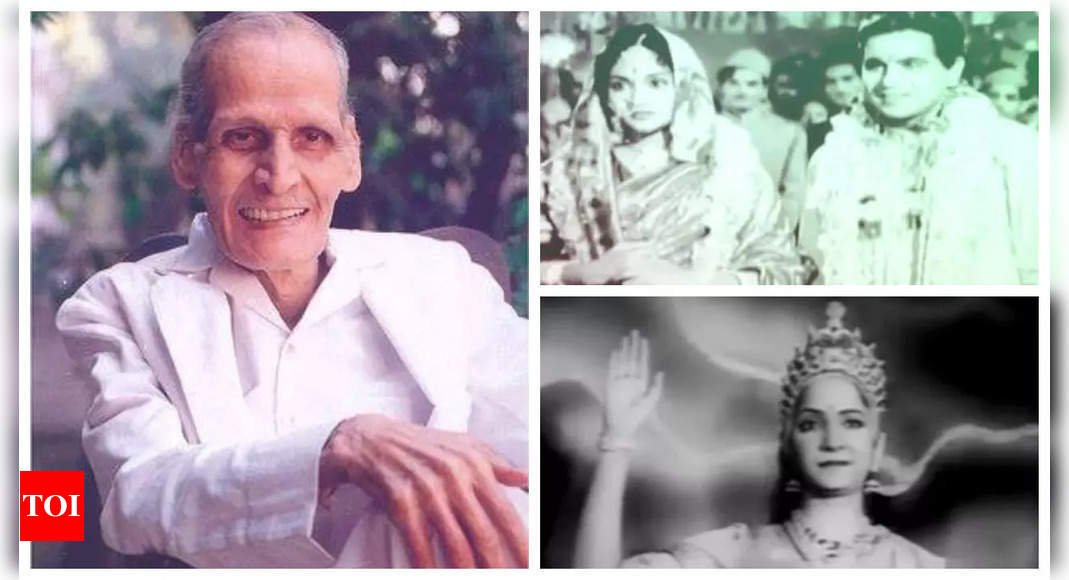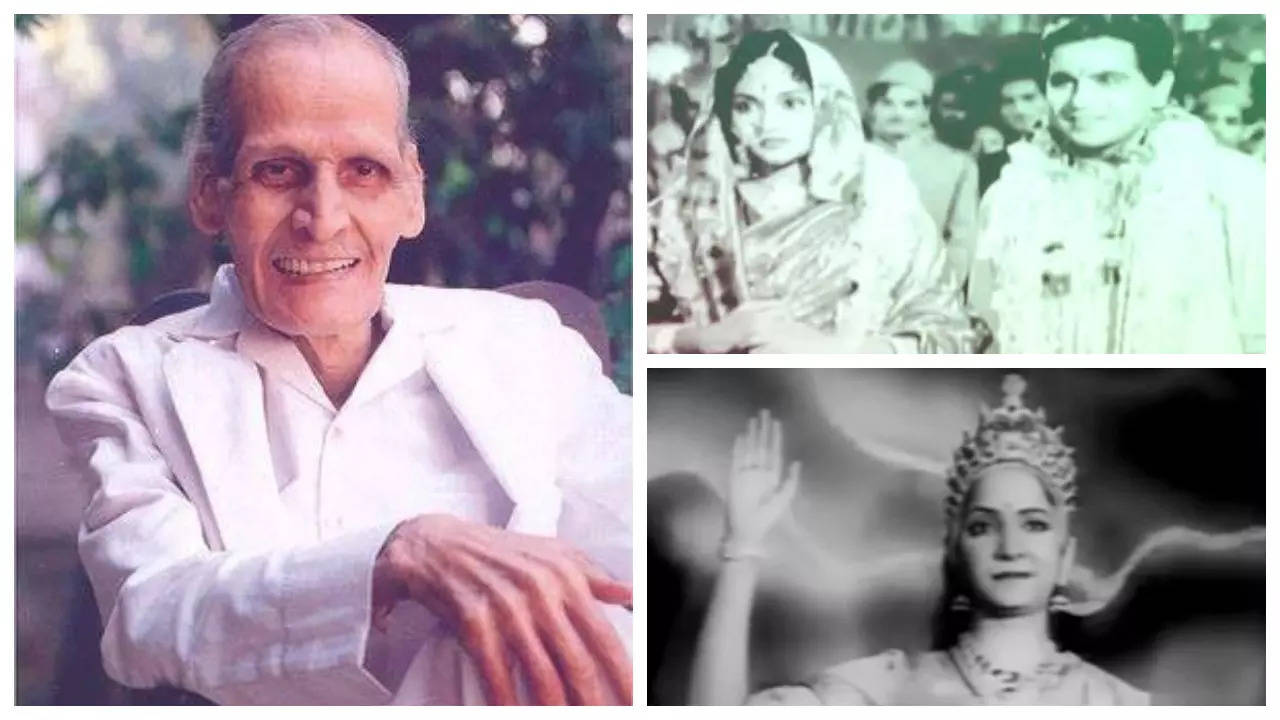30
Kavi Pradeep, renowned for his impactful lyrics, penned some of Bollywood’s most memorable songs, but his work also reflected the turbulent political climate of his time. Two of his most famous songs, ‘Yahi Paigham Humara’ from Paigham (1959) and ‘Aaj Himalay Ki Choti Se’ from Kismet (1943), reveal a hidden layer of social and political commentary.
Yahi Paigham Humara song from Paigham (1959)
The heroes were Dilip Kumar and Raaj Kumar.This song comes at the end of the film. The song was for the workers working in the industries. The film had that theme. The industrialists and workers come together and share profits. The message was important – Insaan Ka Insaan Se Ho Bhaichara Yehi Paigam Humara. But the next antara says, “Unch neech ka qissa, sab ko mile mehnat ke mutabiq apna apna hissa.” It inclines towards the leftist movement. The second antara says, “Har ek mahal se kaho ke jhopadiyon mein diye jalaye. Chhoton aur badon mein ab koi fark na reh jaaye.”
It was against capitalism, and people reacted very well to it. Paigham (1959) was an absolute hit. Dilip Kumar was on the poorer side and Motilal Ji was the industrialist. Raaj Kumar was Dilip Kumar’s elder brother.
Kismet (1943)
Pre-independence, a film called Kismet (1943) was released. He wrote, “Aaj Himalay ki choti se aaj humne lalkara hai. Door hato ae duniya walon Hindustan humara hai.” This song was not at all dependent on the story of the film. The story was different. But it was kept because my father wrote this song and the producers liked it so much that they created a special space. They had a stage show where people sang this song. And the hero was watching the stage show. The song came out at the time of the Quit India Movement. People in theatres started calling for ‘once more’. How would it be possible to reverse the reel of the film? But people forced the theatre owners to play the song again. It became a craze wherever the film was released in India.
His daughter Mitul Pradeep shared, “My father was sent a summons. A warrant was issued. My father went underground for a few days. But luckily, there was a gentleman called Dharmendra Gaud who was an officer in the British police force. He knew my father. He told the British to let him speak to my father first. Mr Gaud contacted my father where he was. My father said, “Have you listened to the lyrics?” He added that the lyrics read as “Shuru hua hai jung tumhara, jaag utho Hindustani. Ab na kisi ke aage jhukna, German ho ya Japani.” World War II was going on at that time. The Germans and Japanese were the enemies of the British. My father reasoned that he had written the song for the British saying Germans and Japanese forces shouldn’t come to India. That’s how he explained and Mr Gaud was satisfied. He conveyed to the British that the song was not anti-British. The British believed that the song was not against them whereas the song was indeed against the British. It was my father’s ploy.”
Yahi Paigham Humara song from Paigham (1959)
The heroes were Dilip Kumar and Raaj Kumar.This song comes at the end of the film. The song was for the workers working in the industries. The film had that theme. The industrialists and workers come together and share profits. The message was important – Insaan Ka Insaan Se Ho Bhaichara Yehi Paigam Humara. But the next antara says, “Unch neech ka qissa, sab ko mile mehnat ke mutabiq apna apna hissa.” It inclines towards the leftist movement. The second antara says, “Har ek mahal se kaho ke jhopadiyon mein diye jalaye. Chhoton aur badon mein ab koi fark na reh jaaye.”
It was against capitalism, and people reacted very well to it. Paigham (1959) was an absolute hit. Dilip Kumar was on the poorer side and Motilal Ji was the industrialist. Raaj Kumar was Dilip Kumar’s elder brother.
Kismet (1943)
Pre-independence, a film called Kismet (1943) was released. He wrote, “Aaj Himalay ki choti se aaj humne lalkara hai. Door hato ae duniya walon Hindustan humara hai.” This song was not at all dependent on the story of the film. The story was different. But it was kept because my father wrote this song and the producers liked it so much that they created a special space. They had a stage show where people sang this song. And the hero was watching the stage show. The song came out at the time of the Quit India Movement. People in theatres started calling for ‘once more’. How would it be possible to reverse the reel of the film? But people forced the theatre owners to play the song again. It became a craze wherever the film was released in India.
His daughter Mitul Pradeep shared, “My father was sent a summons. A warrant was issued. My father went underground for a few days. But luckily, there was a gentleman called Dharmendra Gaud who was an officer in the British police force. He knew my father. He told the British to let him speak to my father first. Mr Gaud contacted my father where he was. My father said, “Have you listened to the lyrics?” He added that the lyrics read as “Shuru hua hai jung tumhara, jaag utho Hindustani. Ab na kisi ke aage jhukna, German ho ya Japani.” World War II was going on at that time. The Germans and Japanese were the enemies of the British. My father reasoned that he had written the song for the British saying Germans and Japanese forces shouldn’t come to India. That’s how he explained and Mr Gaud was satisfied. He conveyed to the British that the song was not anti-British. The British believed that the song was not against them whereas the song was indeed against the British. It was my father’s ploy.”


